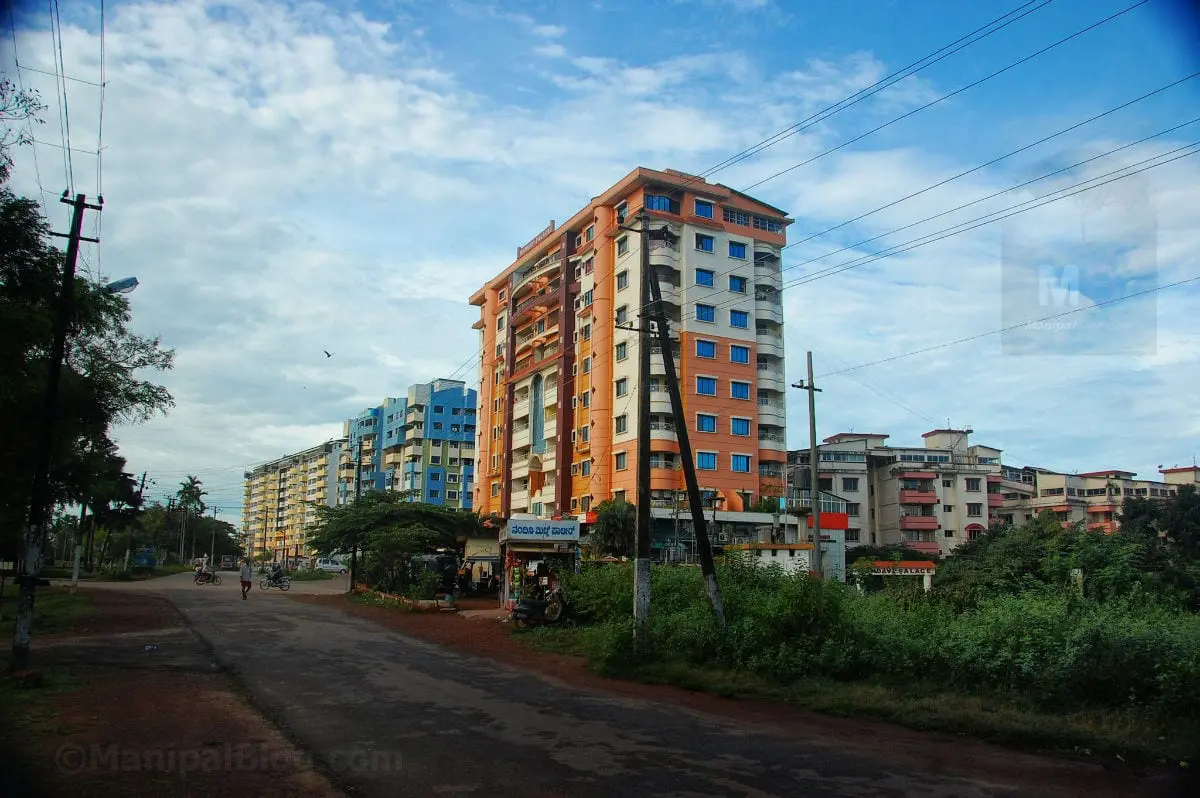
A faculty from my first semester in Manipal once told us that the name of Tiger Circle was anointed because many decades back tigers actually roamed about that area in the evening. A look at today’s TC and the mere thought of tigers roaming around there seems like a fantasy. The other day I went towards the end point area after a long while and was struck by the frenzy of construction activity going on around. Swanky new apartments have sprung up completely changing the skyline of Manipal. A booming university township striving to make its mark in the global education map will of course require the necessary infrastructure to supplement it. But in that ambitious process, the pristine greenery of Manipal is being destroyed and numerous trees are being felled.
I assume many of us haven’t seen it, but the way a bulldozer uproots a tree and clears the vegetation can be called really merciless. Everything happens so fast that what was once a carpet of greenery is reduced to bare soil in a couple of days. It stings in the hearts of nature-lovers like me. A few days back Manipal witnessed one of its biggest concerts to be held in the KMC Greens field. Amid the wild frenzy of the crowd swaying to the loud music, how many of us chanced to look up above and saw birds flying in the sky? I did, and they looked disoriented. With every shout on the booming speakers flocks of birds emerged from the trees behind KMC Greens and started flying hither and thither over the stage. A cause for concern is that most of us are hardly noticing the effects of rapid urbanization in slowing but surely strangling the scenic beauty of a green Manipal. With an ever-increasing footfall this malady is showing no signs of diminishing.
Many a post has been circulated around the social networking sites by concerned nature-lovers receiving wide-spread attention from all. A ban on all further human activities is being called by some. But on hindsight, let’s all think about it: is urbanization preventable? No, not at all especially if Manipal’s plans on becoming an international hotspot are to materialize. Surely I’m a nature lover at heart and believe that as the Supreme beings on this planet we have the moral responsibility of safe-guarding other species. That apart, how much can we forestall the advances of urbanization vis-à-vis the Manipal scenario? Sans the University Manipal is just a hamlet along coastal Karnataka.
With so many reserve forests and National parks in its vicinity it naturally enjoys much greener scenery compared to other towns and cities in India. Actually the skyline of Manipal is still an over-whelming green with a few spots of concrete blocks around the University vicinity. The effects of urbanization are still at a very nascent stage here and logically speaking for construction of new buildings, the green cover has to be disturbed to a certain extent. We also shouldn’t forget that more and more people are making a beeline for Manipal with each passing year and they will have to be accommodated somewhere. Admist this dilemma one needs to pay immediate attention to an emerging problem that might be too difficult to handle in the near future. It would be wrong to support a blanket ban on all further human activities.
As the Supreme beings apart from our responsibility towards other species, we also have a due right to expand our habitat to support a growing population. It would also be a grossly unjustified treatment upon the inhabitants of Manipal to deny the town a chance to expand and further raise its economic prospects. A balance must be hammered out and duly enforced by the authorities with the right earnest. I believe it is actually easier to spread awareness in India regarding preservation of forests because many trees and forests are sacred to them and find a place in many a local folklore. By highlighting these, people would be automatically motivated to preserve them. It is also necessary to make them realize that the phenomenon of deforestation will ultimately affect them the most. This strategy can be successfully implemented in Manipal too. Whilst some of the existing greenery will have to be decimated, nevertheless the majority can be properly sustained with the help of local participation. The whole movement can be brought under the legal ambit by declaring the sensitive areas which maybe the home to some fragile species as Green Belts. This will ensure a strict no-no to the felling of trees and any other kind of human activity within that zone. The onus will then lie upon the local administration to strictly enforce these directives.
The surrounding Reserve Forests and National Parks should be further strengthened and preserved to cushion any impacts of deforestation. With the sincere enforcement of a few rules and an active local participation in implementing them, there shouldn’t be any hindrances to the growth of urbanization having almost neutral effects on the natural environment. Hope to see rise of a new Manipal leading the way in a harmonious balance between urbanization and verdancy in the years to come.
To Vote for this entry the procedure is as follows:

1. AIESEC in Manipal University will post a link/poll to the entries in this contest on their Facebook page.
2. The votes received on this page/poll will determine the winner.
3. Voters will have to visit their facebook page and click on the like button for AIESEC in Manipal University .
012 will be declared the winner.

the way manipal z being urbanized one day it will become an university famous fr its infra structure nt fr its unique green campus. nw we talk only about end point aftr a decade it seems that it ‘ll also bcm jst a play grnd.